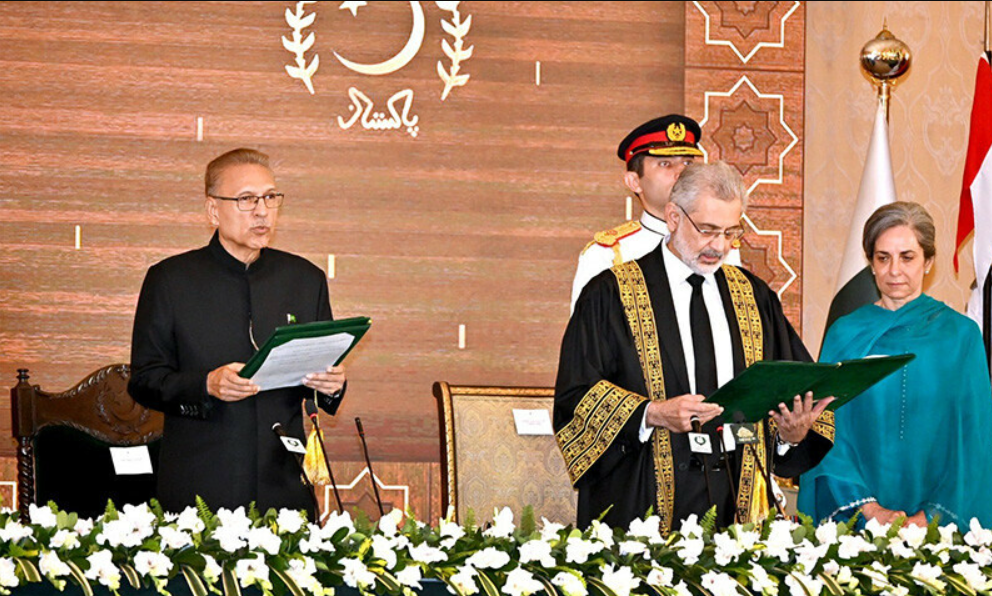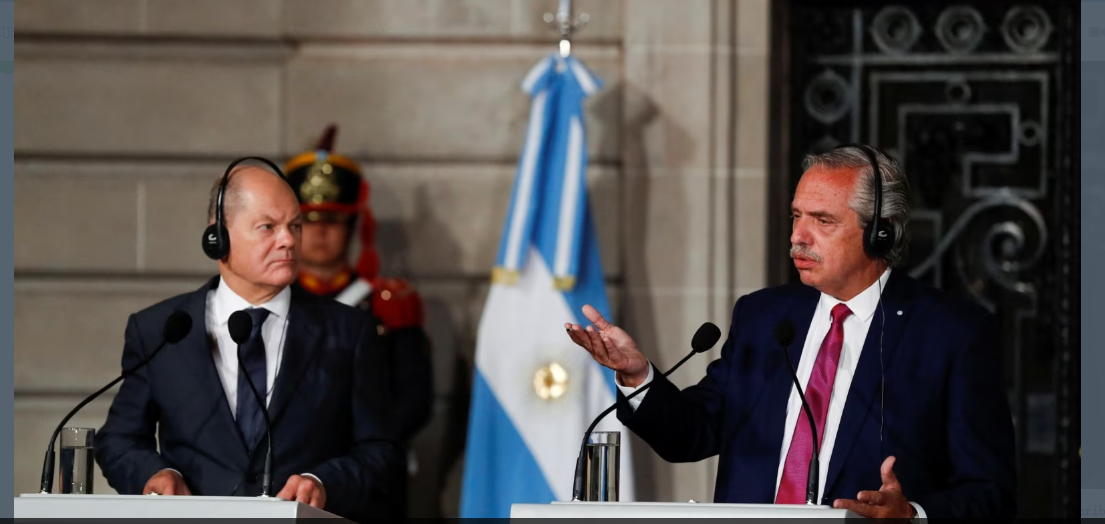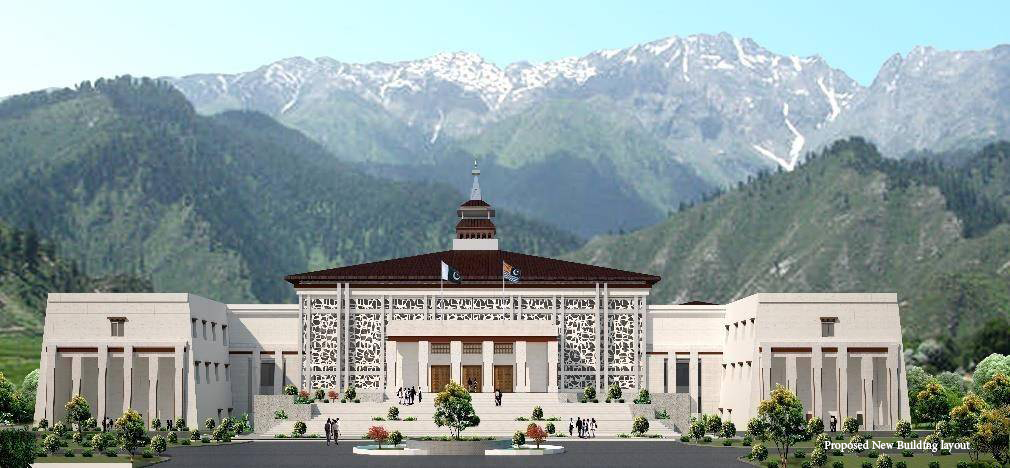Justice Qazi Faez Isa assumed his role as the 29th Chief Justice of Pakistan on Sunday. His initial official act as Chief Justice was to convene a full court session to address legal challenges related to the reduction of the Chief Justice’s authority, with the hearing scheduled for the following day.
The oath of office was administered to Justice Isa by President Arif Alvi in a ceremony held at Aiwan-i-Sadr in Islamabad. Notable attendees included Caretaker Prime Minister Anwaarul Haq Kakar, Chief of Army Staff Asim Munir, and all Supreme Court judges. Prominent justices such as Justice Ayesha Malik, Justice Shahid Waheed, Justice Jamal Khan Mandokhail, Justice Aminuddin Khan, Justice Athar Minallah, Justice Mazahir Ali Akbar Naqvi, Justice Muhammad Ali Mazhar, and Justice Yayha Afridi were also present, along with former Chief Justices Iftikhar Chaudhry and Tassaduq Jillani.
The ceremony commenced with a recitation of the Holy Quran, followed by the reading of the notification confirming Justice Isa’s appointment. President Arif Alvi then administered the oath to Justice Isa, with his wife Sarina Isa by his side.
One of Justice Isa’s initial actions as Chief Justice was to form a full court to address a series of challenges related to the Supreme Court (Practice and Procedure) Act of 2023. This act mandates the establishment of benches for constitutional matters of public importance by a committee of three senior judges from the court. The hearing for these challenges is scheduled for 9 am the following day, and notices have already been issued to Attorney General for Pakistan (AGP) Mansoor Usman Awan.
It’s worth noting that the enforcement of the SC (Practice and Procedure) Act, 2023 had been temporarily suspended on April 13, following an order from an eight-judge apex court bench headed by the outgoing Chief Justice Umar Ata Bandial. Justice Bandial had expressed the court’s respect for Parliament but also raised concerns about potential constitutional deviations in enacting the SC (Practice and Procedure) Bill, 2023, which the petitioners argued was tainted with mala fide intent.
Additionally, the petitioners asserted that the federal government lacks the authority to enact laws that interfere with or regulate the functioning of the apex court, its powers, or its judges, including the Chief Justice, under the Constitution.
In a significant appointment, Justice Isa appointed Jazeela Aslam, an Additional District and Sessions Judge from Okara, as the first female Supreme Court Registrar in the country. This appointment is for a three-year period.
Justice Isa’s background reveals a distinguished legal career, having practiced for over 27 years before various high courts in Pakistan, the Federal Shariat Court, and the Supreme Court of Pakistan. He has also been called upon as amicus curiae in complex cases and conducted international arbitration. He assumed office as a judge of the Supreme Court of Pakistan on September 5, 2014.
Justice Qazi Faez Isa’s appointment as the 29th Chief Justice of Pakistan marks a significant moment in the country’s judicial history. As he assumes this esteemed position, Justice Isa carries with him a wealth of experience, a commitment to upholding the rule of law, and a vision for enhancing the judiciary’s role in Pakistan’s democratic framework.
Born on October 26, 1959, in Quetta, Justice Qazi Faez Isa comes from a family with a rich legacy of public service and dedication to Pakistan’s founding principles. His father, the late Qazi Mohammad Isa of Pishin, played a pivotal role in the Pakistan Movement and was a close associate of Quaid-i-Azam Muhammad Ali Jinnah. He was the first person from Balochistan to obtain a Bar-at-Law degree and was instrumental in establishing the All-India Muslim League in Balochistan after returning from London. His contributions extended to serving as the sole member of the Central Working Committee of the All India Muslim League from Balochistan.
Justice Isa’s mother, Begum Saida Isa, was a prominent social worker who served on the boards of hospitals and charitable organizations dedicated to education, children’s welfare, and women’s health issues. From an early age, Justice Isa was immersed in a family deeply committed to the betterment of society and the nation.
His educational journey took him from Quetta to Karachi, where he completed his ‘O’ and ‘A’ levels at the Karachi Grammar School (KGS). Subsequently, he pursued a career in law, undertaking his Bar Professional Examination at the Inns of Court School Law in London. This educational background laid the foundation for his future legal career.
Justice Isa began his legal career as an Advocate of the Balochistan High Court on January 30, 1985, and later earned the distinction of becoming an Advocate Supreme Court in March 1998. Over the course of more than 27 years, he practiced law before the High Courts of Pakistan, the Federal Shariat Court, and the Supreme Court of Pakistan. He held memberships in various bar associations, including the Balochistan High Court Bar Association, the Sindh High Court Bar Association, and the Supreme Court Bar Association of Pakistan.
His expertise in the field of law led to numerous instances where he was called upon to serve as amicus curiae by the High Courts and the Supreme Court, providing valuable assistance in complex legal cases. Additionally, he engaged in international arbitration, further expanding his legal horizons.
Justice Isa’s judicial journey culminated with his appointment as a judge of the Supreme Court of Pakistan on September 5, 2014. Throughout his tenure as a judge, he has demonstrated a commitment to upholding the principles of justice, fairness, and the rule of law. His extensive legal knowledge and dedication to the Constitution have made him a respected figure within the legal community and beyond.
One of the pressing challenges that Justice Isa faces as the Chief Justice of Pakistan is to unify the court and restore its credibility. There have been concerns about the formation of benches composed of “like-minded judges,” potentially sidelining senior judges and raising questions about the impartiality of decisions. To address this, Justice Isa may need to implement reforms that ensure a more balanced distribution of cases among judges and enhance transparency in bench formation.
Another critical issue that Justice Isa must confront is the significant backlog of over 56,000 cases pending in the courts. This backlog not only delays justice for individuals but also hinders the judiciary’s ability to address emerging legal and societal issues promptly. Streamlining court procedures, improving case management, and potentially expanding the judiciary’s capacity are some of the strategies he may consider to address this challenge.
Moreover, the judiciary’s role in overseeing the democratic process may come to the forefront during Justice Isa’s tenure. The question of holding general elections within 90 days of the dissolution of national and provincial assemblies may be brought before the Supreme Court. Maintaining a constructive working relationship with the executive branch, particularly on matters related to elections, will be crucial.
Justice Isa’s previous experience as the top judge of the Balochistan High Court from 2009 to 2014, during a sensitive period when military operations were ongoing in Balochistan, equips him with a unique perspective on the intricacies of the region’s legal and security challenges. This experience may prove valuable in addressing issues specific to Balochistan and other regions facing similar challenges.
Justice Isa’s vision for the Supreme Court of Pakistan and his approach to these challenges will undoubtedly shape the course of justice in the country during his tenure as Chief Justice. His dedication to the principles of justice, his wealth of legal experience, and his commitment to upholding the rule of law make him a pivotal figure in Pakistan’s judicial landscape. As he embarks on this significant chapter of his career, the nation watches with anticipation, hoping for a judiciary that continues to evolve, uphold justice, and protect the rights and freedoms of all citizens.






Share this: